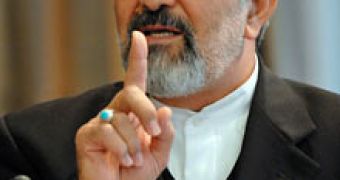Iran's ambassador to the International Atomic Energy Agency (IAEA) denied that cyber-attacks targeting the country's nuclear programme has affected centrifuges at the Natanz Fuel Enrichment Plant.
"The viruses could not do anything to the Iranian centrifuges and did not affect the functioning of the Bushehr nuclear power plant either," ambassador Ali Asghar Soltanieh said, according to AFP.
In October last year, amid speculations that the Stuxnet malware has delayed the start-up of the Russian-built nuclear power plant at Bushehr, Iranian officials admitted that the worm infected computers used by personnel at the plant, but no critical systems.
Later discoveries resulted from the analysis of Stuxnet pointed to the Natanz Fuel Enrichment Plant as being a more likely target.
In November, Iranian President Mahmoud Ahmadinejad said that "they [foreign agents] were able to create problems on a limited basis for some of our centrifuges by software installed in electronic equipment," but stressed that "our specialists stopped that and they will not be able to do it again."
The following month, the Institute for Science and International Security (ISIS) released a report suggesting that Stuxnet was likely responsible for almost 1,000 centrifuges being decommissioned at Natanz in late 2009, early 2010.
Retiring Mossad chief Meir Dagan said recently that technological difficulties experienced by the Iranians could have delayed the creation of a bomb until 2015.
Israel is suspected of developing Stuxnet together with the United States in order to hinder Iran's ability of producing weapons-grade enriched uranium.
Iran continues to claim its programme has nothing to do with weapons, but generating electricity. "Nothing can stop enriching uranium in Iran, neither the resolutions of the United Nations Security Council, nor sanctions, nor viruses," ambassador Soltanieh stressed.

 14 DAY TRIAL //
14 DAY TRIAL //